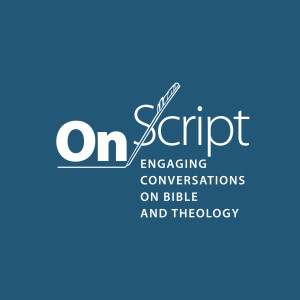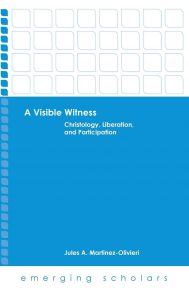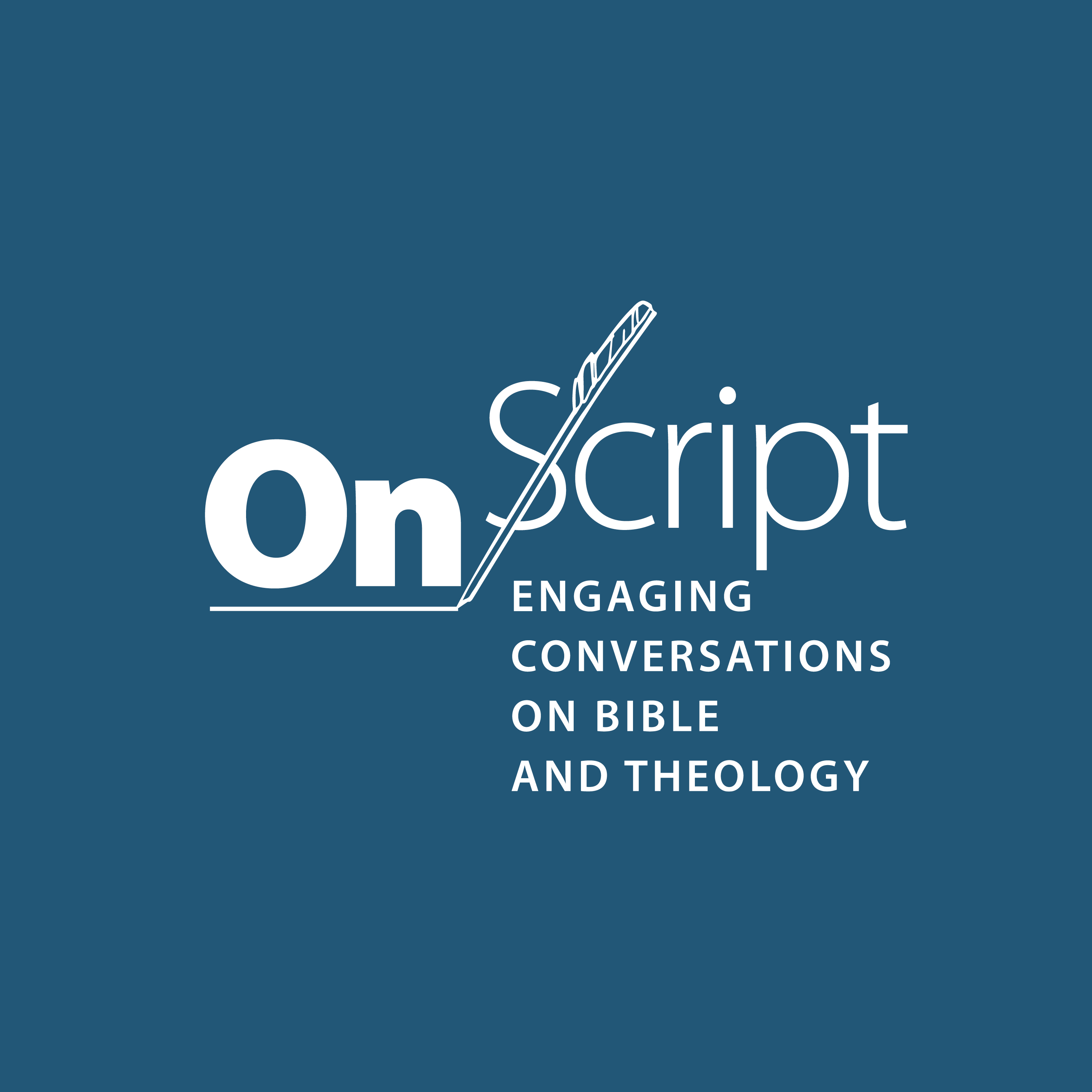Episodes

Wednesday Mar 31, 2021
Ervine Sheblazm - Paul's Theology of Universalism
Wednesday Mar 31, 2021
Wednesday Mar 31, 2021
 Episode: Paul's missionary travels stopped in Rome, but is that where they should end? Dr. Ervine Sheblatzm is back on the show to give a firm "Nein!" Listen to a fascinating and wide-ranging discussion of the many ways that Paul's theology of universalism applies to all, and how Paul's work can be carried forward into the future. Dr. Sheblatzm claims that "Paul's theology may have surprises for us yet," but grasping them may require "donning the space suit of faith."
Episode: Paul's missionary travels stopped in Rome, but is that where they should end? Dr. Ervine Sheblatzm is back on the show to give a firm "Nein!" Listen to a fascinating and wide-ranging discussion of the many ways that Paul's theology of universalism applies to all, and how Paul's work can be carried forward into the future. Dr. Sheblatzm claims that "Paul's theology may have surprises for us yet," but grasping them may require "donning the space suit of faith."
Guest: Prof. Ervine Sheblazm is the author of numerous books, including Paul, Multiverse Theory and the Journey of the Inner Soul; Faultlines in the Horizon: Paul’s Dawning Age Marches On; Feathers on the Nose: Paul’s Radical Pastoral Theology for the Non-Anthropic World; and he’s here today to talk about his latest, Paul's Theology of Universalism: The Final Words: Paul's Voyage Must Go On. Prof. Sheblatzm has Ph.D.’s in theology and physics, and holds a distinguished chair in theology and physics at the Center For Excellence that he runs in the Lake District, in the UK. The CFE is a theological lab and farmstead whose mission is to “propagate philosophical consideration of the known world, and the unknown world, and observe experimentally the aforesaid.”
What readers are saying: Read what Sheblatzm's readers think (from the back cover)!

Give: Help support OnScript as we grow and develop. Click HERE.
OnScript was voted one of the top 20 theology podcasts! https://blog.feedspot.com/theology_podcasts/

Tuesday Mar 23, 2021
Julien Smith - Paul and the Good Life
Tuesday Mar 23, 2021
Tuesday Mar 23, 2021
 Episode: What happens when Dallas Willard, Wendell Berry, and James K. A. Smith walk into a bar to discuss Paul and the Good Life? Join Julien C. H. Smith and co-host Matt Bates as they explore the social and political world of Scripture, with a special eye for how Paul's vision of ideal kingship shaped his ideas about the gospel and salvation.
Episode: What happens when Dallas Willard, Wendell Berry, and James K. A. Smith walk into a bar to discuss Paul and the Good Life? Join Julien C. H. Smith and co-host Matt Bates as they explore the social and political world of Scripture, with a special eye for how Paul's vision of ideal kingship shaped his ideas about the gospel and salvation.
The Book: Julien C. H. Smith, Paul and the Good Life: Transformation and Citizenship in the Commonwealth of God (Waco, TX: Baylor University Press, 2020). Salvation and human flourishing—a life marked by fulfillment and well-being—have often been divorced in the thinking and practice of the church. For the apostle Paul, however, the two were inseparable in the vision for the good life. Drawing on the revolutionary teachings and kingdom proclamation of Jesus, Paul and the early church issued a challenge to the ancient world’s dominant narratives of flourishing. Paul’s conviction of Jesus’ universal Lordship emboldened him to imagine not just another world, but this world as it might be when transformed. Ultimately, Paul and the Good Life invites us to imagine how citizens of this heavenly commonwealth might live in the in-between time, in which Jesus’s reign has been inaugurated but not consummated. (Publisher’s description, abridged).
US Orders (valid for as long as the deal happens to last): use code 17PGL at baylorpress.com receive 20% off + free shipping.
 Guest: Julien C. H. Smith’s scholarly interests center on Biblical texts and traditions. He received his BA from the University of California at Berkeley in French and Slavic Languages and Literature, an MA in Theology from Fuller Theological Seminary, and a PhD in Religion from Baylor University. He has written on a variety of New Testament and apocryphal subjects, including Ephesians, Acts, and the Epistle of Barnabas. His first book, Christ the Ideal King: Cultural Context, Rhetorical Strategy, and the Power of Divine Monarchy in Ephesians, was published in 2011. Recent publications include “You are my witnesses: Walker Percy, Jacques Maritain, and the Jews,” in Religion and Literature, and “The Epistle of Barnabas and the Two Ways of Teaching Authority,” in Vigiliae Christianae. Smith teaches “Christian Tradition, ”seminars on Jesus, Paul, Theology & Ecology, and in the First-Year Program.
Guest: Julien C. H. Smith’s scholarly interests center on Biblical texts and traditions. He received his BA from the University of California at Berkeley in French and Slavic Languages and Literature, an MA in Theology from Fuller Theological Seminary, and a PhD in Religion from Baylor University. He has written on a variety of New Testament and apocryphal subjects, including Ephesians, Acts, and the Epistle of Barnabas. His first book, Christ the Ideal King: Cultural Context, Rhetorical Strategy, and the Power of Divine Monarchy in Ephesians, was published in 2011. Recent publications include “You are my witnesses: Walker Percy, Jacques Maritain, and the Jews,” in Religion and Literature, and “The Epistle of Barnabas and the Two Ways of Teaching Authority,” in Vigiliae Christianae. Smith teaches “Christian Tradition, ”seminars on Jesus, Paul, Theology & Ecology, and in the First-Year Program.
OnScript's Review (back cover endorsement): Headwaters are elusive. So, essential streams are navigated separately: the gospel, spiritual practices, politics, church life, philosophy. But in this exciting and important study, Julien Smith goes farther back and deeper in. He shows that the gospel invites us not merely to trust a savior, but to give allegiance to the ideal king for the sake of human flourishing. The separate streams are joined to the headwaters and mapped afresh. -- Matthew W. Bates, author of Salvation by Allegiance Alone; associate professor of theology, Quincy University
Give: Help support OnScript as we grow and develop. Click HERE.
OnScript was voted one of the top 20 theology podcasts! https://blog.feedspot.com/theology_podcasts/

Tuesday Mar 16, 2021
Clinton Bailey - Bedouin Culture in the Bible
Tuesday Mar 16, 2021
Tuesday Mar 16, 2021
 Episode: Dru Johnson talks with Clinton Bailey about how he ended up living with Bedouins in the Negev, their law, gender practices, and poetry. His most recent book, Bedouin Culture in the Bible (Yale University Press, 2019), examines and explains practices, poetry, and laws from the Hebrew Bible's own bedouin roots (according to the stories of Genesis).
Episode: Dru Johnson talks with Clinton Bailey about how he ended up living with Bedouins in the Negev, their law, gender practices, and poetry. His most recent book, Bedouin Culture in the Bible (Yale University Press, 2019), examines and explains practices, poetry, and laws from the Hebrew Bible's own bedouin roots (according to the stories of Genesis).
Guest: Dr. Clinton Bailey is a leading authority on Bedouin culture, and has done fieldwork in Sinai and the Negev for the past 50 years. His B.A. is from the Hebrew University; his M.A. and Ph.D. from Columbia University. He was born and raised in Buffalo, NY, and made Aliya to Israel in 1958. In 1994, he was awarded the Emil Grunzweig Human Rights Award for his efforts to obtain civil rights for Bedouin in Israel. His books include such titles as:

- Bedouin Poetry(Oxford University Press, 1991)
- A Culture of Desert Survival: Bedouin Proverbs (Yale University Press, 2004)
- Bedouin Law (Yale University Press, 2010)
- Bedouin Culture in the Bible (Yale University Press, 2018)
Give: Help support OnScript as we grow and develop. Click HERE.
OnScript was voted one of the top 20 theology podcasts! https://blog.feedspot.com/theology_podcasts/

Tuesday Mar 09, 2021
Bethany Sollereder - God, Evolution, and Animal Suffering
Tuesday Mar 09, 2021
Tuesday Mar 09, 2021
 Episode: Was there death and violence before the Fall? Was there cancer before? Did lions go after gazelles before the Fall? Bethany Sollereder says yes, yes, and yes. So what, if anything, changed in creation through the Fall? This episode probes the question of animal suffering throughout the evolutionary process, as well as the theological implications of death in the pre-Fall world.
Episode: Was there death and violence before the Fall? Was there cancer before? Did lions go after gazelles before the Fall? Bethany Sollereder says yes, yes, and yes. So what, if anything, changed in creation through the Fall? This episode probes the question of animal suffering throughout the evolutionary process, as well as the theological implications of death in the pre-Fall world.
Guest: Bethany Sollereder is a Research Fellow at the Laudato Si’ Research Institute at Campion Hall. She specializes in theology concerning evolution and the problem of suffering and is currently working on the theological aspects of our changing climate. Bethany received her PhD in Theology from the University of Exeter and an MCS in interdisciplinary studies from Regent College, Vancouver. She is the author of God, Evolution, and Animal Suffering: Theodicy Without a Fall (Routledge, 2018). She also works with BioLogos, God and the Big Bang, Learning About Science And Religion (LASAR), and has written for popular publications such as The Christian Century.
Give: Help support OnScript as we grow and develop. Click HERE.

Tuesday Mar 02, 2021
Andrew Rillera - Quotations, Atonement, and Wrath in Paul
Tuesday Mar 02, 2021
Tuesday Mar 02, 2021
 Episode: Returning to the theme of interviewing young and upcoming scholars, the cutting edge of the cutting edge, in this episode Chris Tilling talks with Andrew Rillera, a PhD candidate in NT at Duke University. Chris talks with Andrew about his background as a Jehovah’s Witness and what got him into biblical studies, how to identify when Paul is quoting from someone else in his letters and some problems related to that in Romans (the topic of Andrew’s dissertation). They discuss Andrew’s forthcoming book contracted with Cascade on sacrifice and sacrificial imagery in the NT. They even throw in a little bit about how Paul speaks about divine judgment. This all made for a rich and fascinating discussion.
Episode: Returning to the theme of interviewing young and upcoming scholars, the cutting edge of the cutting edge, in this episode Chris Tilling talks with Andrew Rillera, a PhD candidate in NT at Duke University. Chris talks with Andrew about his background as a Jehovah’s Witness and what got him into biblical studies, how to identify when Paul is quoting from someone else in his letters and some problems related to that in Romans (the topic of Andrew’s dissertation). They discuss Andrew’s forthcoming book contracted with Cascade on sacrifice and sacrificial imagery in the NT. They even throw in a little bit about how Paul speaks about divine judgment. This all made for a rich and fascinating discussion.
Guest: Andrew Rillera is currently a PhD candidate in New Testament at Duke University and serves as an adjunct professor at Eternity Bible College for their Distance Ed program. He is also a consultant and Research Editor for PAX Collective (madeforpax.org/about-us): A non-profit, which seeks to promote the peace of Jesus in the 21st century through accessible Christian content specifically targeting Generation Z and Millennials. He is currently finishing up his dissertation on Romans and working on a book forthcoming with Cascade Books, Lamb of the Free: Recovering the Varied Sacrificial Understandings of Jesus’s Death. He wrote Fight: A Christian Case for Nonviolence (Cook, 2013) with Preston Sprinkle (now re-titled as Nonviolence: The Revolutionary Way of Jesus). His academic interests include the apostle Paul’s relation to Early Judaism, race and ethnicity in the Bible, theological ethics (war, violence, restorative justice, environment, economy), theological hermeneutics, sacrifice and sacrificial imagery, and Philo. Previously, he served as a Children's Ministry and College Director while completing his MA in Theology and Ministry at Fuller Theological Seminary. When Andrew isn’t hanging out with his family, reading, or grading, he is probably watching or playing hockey. 
Give: Help support OnScript as we grow and develop. Click HERE.

Tuesday Feb 23, 2021
Lucy Peppiatt - Paul on Women's Subordination (1 Cor 11)
Tuesday Feb 23, 2021
Tuesday Feb 23, 2021
 Episode: This episode covers Paul, m/f, hermeneutics, theology, and all the things. Lucy Peppiatt helps us think through the challenging issues at play in 1 Corinthians 11, territory we covered in a previous episode with Michael Lakey, but this time from a different angle. Lucy has thought long and hard about this passage, and talks with Matt L. about some of her groundbreaking work. This episode will prepare us for our next episode with Andrew Rillera, which makes reference to Peppiatt's work. This is a rebroadcast of an earlier episode on gender and hermeneutics in Paul.
Episode: This episode covers Paul, m/f, hermeneutics, theology, and all the things. Lucy Peppiatt helps us think through the challenging issues at play in 1 Corinthians 11, territory we covered in a previous episode with Michael Lakey, but this time from a different angle. Lucy has thought long and hard about this passage, and talks with Matt L. about some of her groundbreaking work. This episode will prepare us for our next episode with Andrew Rillera, which makes reference to Peppiatt's work. This is a rebroadcast of an earlier episode on gender and hermeneutics in Paul.

Guest: Lucy Peppiatt is Principal of Westminster Theological Centre, where she also lectures in Systematic Theology. She’s the author of Rediscovering Scripture's Vision for Women (IVP, 2019), Unveiling Paul’s Women: Making Sense of 1 Corinthians 11:2-16 (Wipf and Stock, 2018),
Women and Worship at Corinth: Paul’s Rhetorical Arguments in 1 Corinthians (Wipf and Stock, 2015), and The Disciple: On Becoming Truly Human (Wipf and Stock, 2012). 

Give: Visit our Donate Page if you want to join the big leagues and become a regular donor.

Tuesday Feb 16, 2021
Matthew Thiessen - Jesus and the Forces of Death
Tuesday Feb 16, 2021
Tuesday Feb 16, 2021
 Episode: Was Jesus opposed to the purity system? Was he a revolutionary who challenged religious anxieties over uncleanness? Matthew Thiessen joins us to discuss these questions, and to help us rethink assumptions about the relationship between Jesus and Israel's longstanding purity system. This episode discusses Jesus' confrontation with demonic impurity and ritual impurity, his relationship to the Sabbath, and much more from Thiessen's new book Jesus and the Forces of Death (Baker, 2020).
Episode: Was Jesus opposed to the purity system? Was he a revolutionary who challenged religious anxieties over uncleanness? Matthew Thiessen joins us to discuss these questions, and to help us rethink assumptions about the relationship between Jesus and Israel's longstanding purity system. This episode discusses Jesus' confrontation with demonic impurity and ritual impurity, his relationship to the Sabbath, and much more from Thiessen's new book Jesus and the Forces of Death (Baker, 2020).
Guest: Matthew Thiessen (PhD, Duke University) is associate professor of religious studies at McMaster University in Hamilton, Ontario. He is the author of Contesting Conversion: Genealogy, Circumcision, and Identity in Ancient Judaism and Christianity (awarded the Manfred Lautenschlaeger Award for Theological Promise), Paul and the Gentile Problem, and Jesus and the Forces of Death. He is also the coeditor of several volumes.
Give: Help support OnScript as we grow and develop. Click HERE.

Wednesday Feb 10, 2021
Ben Witherington III & Jason Myers - Views on Paul
Wednesday Feb 10, 2021
Wednesday Feb 10, 2021

 Episode: In this episode, Jason A. Myers and Ben Witherington III will help orient you to some of the major perspectives on Paul within contemporary New Testament scholarship. Tune in for rich conversation on N. T. Wright's work, covenant theology, authorship in the Pauline corpus, Paul within Judaism, critiques/assessments of apocalyptic readings of Paul, and much more that arises from Witherington III's and Myers' book Voices and Views on Paul (IVP 2020)!
Episode: In this episode, Jason A. Myers and Ben Witherington III will help orient you to some of the major perspectives on Paul within contemporary New Testament scholarship. Tune in for rich conversation on N. T. Wright's work, covenant theology, authorship in the Pauline corpus, Paul within Judaism, critiques/assessments of apocalyptic readings of Paul, and much more that arises from Witherington III's and Myers' book Voices and Views on Paul (IVP 2020)!
Guests: Dr. Ben Witherington III is Amos Professor of New Testament for Doctoral Studies at Asbury Theological Seminary and on the doctoral faculty at St. Andrews University in Scotland. A graduate of UNC, Chapel Hill, he went on to receive the M.Div. degree from Gordon-Conwell Theological Seminary and a Ph.D. from the University of Durham in England. He is now considered one of the top evangelical scholars in the world, and is an elected member of the prestigious SNTS, a society dedicated to New Testament studies. Witherington has also taught at Ashland Theological Seminary, Vanderbilt University, Duke Divinity School and Gordon-Conwell. A popular lecturer, Witherington has presented seminars for churches, colleges and biblical meetings not only in the United States but also in England, Estonia, Russia, Europe, South Africa, Zimbabwe and Australia. He has also led tours to Italy, Greece, Turkey, Israel, Jordan, and Egypt. Witherington has written over fifty books, including The Jesus Quest and The Paul Quest, both of which were selected as top biblical studies works by Christianity Today, as well as Voices and Views on Paul (IVP 2020), co-authored with Jason Myers. He also writes for many church and scholarly publications, and is a frequent contributor to the Patheos website. Along with many interviews on radio networks across the country, Witherington has been seen on the History Channel, NBC, ABC, CBS, CNN, The Discovery Channel, A&E, and the PAX Network.
Dr. Jason A. Myers (Ph.D., Asbury Theological Seminary, 2015) is the Assistant Professor of Biblical Studies at Greensboro College. In addition to this full time role, he is also lecturer in New Testament at Westminster Theological Centre in the U.K. Jason is active in both the academy and the church and serves as the director of preaching in his church context. He is the co-author of Voices and Views on Paul (IVP 2020) and Paul of Arabia (Cascade 2020). He is married to Lisa (13 years) and they have a son, Augustine and live in Greesnboro, NC.
Give: Help support OnScript as we grow and develop. Click HERE.

Tuesday Feb 02, 2021
Jules Martinez-Olivieri - Christology, Liberation, Participation
Tuesday Feb 02, 2021
Tuesday Feb 02, 2021
 Episode: What is salvation? What does it mean that Christ frees us? What is liberation theology? Why is there such a fuss about liberation theology anyway? In this episode, Dr. Jules Martinez-Olivieri joins co-host Amy Hughes to talk about his work on Christology and liberation and participation.
Episode: What is salvation? What does it mean that Christ frees us? What is liberation theology? Why is there such a fuss about liberation theology anyway? In this episode, Dr. Jules Martinez-Olivieri joins co-host Amy Hughes to talk about his work on Christology and liberation and participation.
Guest: Jules A. Martinez-Olivieri, PhD., is an Associate Professor of Theology and Director of the Masters in Theological Studies at Trinity International University in Florida. Dr. Martinez's research interests range from Christology, trinitarian theology, political theologies, and missional theology. His first book, A Visible Witness: Christology, Liberation and Participation (Minneapolis, MN: Fortress Press, 2016), is available in English and Spanish (Publicaciones Kerygma). As a professor, Dr. Martínez has a rich and diverse teaching background, having taught at seminaries in Puerto Rico, Bolivia, Guatemala, Perú, and the United States. As an ordained minister, his broad pastoral experience includes serving as a pastor in Latino/a churches in Illinois and church planter in Puerto Rico. It was these very commitments which, in the aftermath of hurricanes Irma and María in 2017, led him to co-found The Christ Collaborative, an interdenominational initiative focused on disaster relief and community development. He lives in Miami with his family.
It was these very commitments which, in the aftermath of hurricanes Irma and María in 2017, led him to co-found The Christ Collaborative, an interdenominational initiative focused on disaster relief and community development. He lives in Miami with his family.
Give: Help support OnScript as we grow and develop. Click HERE.

Wednesday Jan 27, 2021
Mark and Luke Glanville - Refuge Reimagined
Wednesday Jan 27, 2021
Wednesday Jan 27, 2021

 Episode: Mark and Luke Glanville bring their unique areas of expertise in biblical studies and international relations to bear on the pressing global refugee crisis. This episode covers everything from local to international issues, personal stories and politics, and the transformative biblical concept of kinship. This episode will provoke and stir you to action!
Episode: Mark and Luke Glanville bring their unique areas of expertise in biblical studies and international relations to bear on the pressing global refugee crisis. This episode covers everything from local to international issues, personal stories and politics, and the transformative biblical concept of kinship. This episode will provoke and stir you to action!
Guests: Mark R. Glanville (PhD, Bristol University) is associate professor of pastoral theology at Regent College, Vancouver, and an Old Testament scholar. He is the author of Adopting the Stranger as Kindred in Deuteronomy and Exodus: Society Reshaped as Family (Lexham, forthcoming) and Refuge Reimagined: Biblical Kinship in Global Politics (IVP, 2021) with his brother Luke; and has written articles for a variety of publications including the Journal of Biblical Literature, Refuge Journal, Journal of Missional Practice, Christian Educators Journal, Evangelicals for Social Action, Faith Today, The Light Magazine, and The Presbyterian Pulse. Mark previously ministered in a missional urban community, Grandview Calvary Baptist Church, Vancouver, and was a professor of congregational theology at the Missional Training Center in Phoenix. He is a trained jazz pianist and lives in Vancouver, Canada, with his wife, Erin, and their two children.
Luke Glanville (PhD, University of Queensland) is associate professor in the department of international relations at Australian National University. He is the author of Sovereignty and the Responsibility to Protect: A New History, which won the Australian Political Science Association Crisp Prize in 2016 and the CHOICE Outstanding Academic Title Award in 2014, and and Refuge Reimagined: Biblical Kinship in Global Politics (IVP, 2021), co-authored with his brother Mark.
Give: Help support OnScript as we grow and develop. Click HERE.

